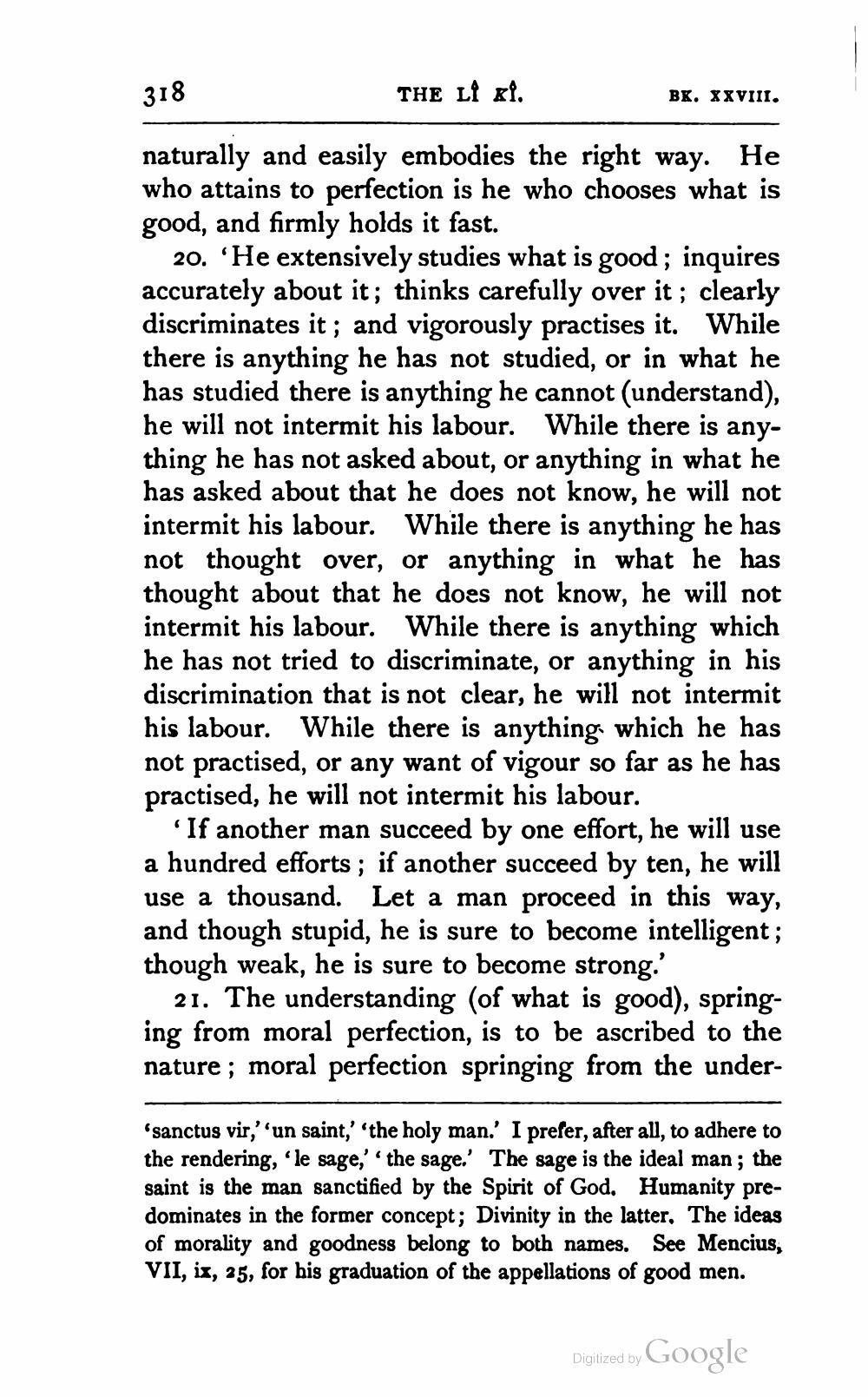________________
318
THE Lt xi.
BK. XXVIII.
naturally and easily embodies the right way. He who attains to perfection is he who chooses what is good, and firmly holds it fast.
20. 'He extensively studies what is good ; inquires accurately about it; thinks carefully over it; clearly discriminates it; and vigorously practises it. While there is anything he has not studied, or in what he has studied there is anything he cannot (understand), he will not intermit his labour. While there is anything he has not asked about, or anything in what he has asked about that he does not know, he will not intermit his labour. While there is anything he has not thought over, or anything in what he has thought about that he does not know, he will not intermit his labour. While there is anything which he has not tried to discriminate, or anything in his discrimination that is not clear, he will not intermit his labour. While there is anything which he has not practised, or any want of vigour so far as he has practised, he will not intermit his labour.
'If another man succeed by one effort, he will use a hundred efforts ; if another succeed by ten, he will use a thousand. Let a man proceed in this way, and though stupid, he is sure to become intelligent; though weak, he is sure to become strong.
21. The understanding (of what is good), springing from moral perfection, is to be ascribed to the nature; moral perfection springing from the under
sanctus vir,''un saint,''the holy man.' I prefer, after all, to adhere to the rendering, 'le sage,' the sage.' The sage is the ideal man; the saint is the man sanctified by the Spirit of God. Humanity predominates in the former concept; Divinity in the latter. The ideas of morality and goodness belong to both names. See Mencius, VII, ix, 35, for his graduation of the appellations of good men.
Digitized by Google




